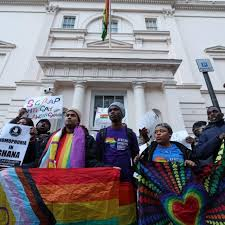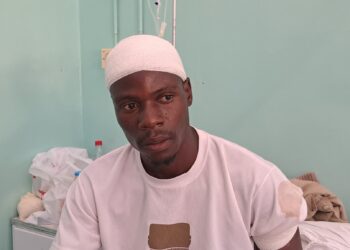Ghana’s Supreme Court has dismissed two legal challenges against the Human S3xual Rights and Family Values Bill, a controversial piece of legislation that targets homos3xual individuals and groups.
The court’s ruling paves the way for the bill, which has drawn widespread condemnation from human rights organizations and the international community, to be signed into law by President Nana Akufo-Addo.
This ruling marks a pivotal moment in the ongoing struggle for LGBTQ rights in Ghana, which has seen an increase in anti-LGBT sentiment and legislative efforts in recent years.
The bill, which was passed by Ghana’s parliament earlier this year, introduces harsh penalties that include a three-year prison sentence for individuals identifying as LGBTQ and a five-year sentence for those found guilty of forming or funding LGBTQ organizations.
The punitive measures outlined in the legislation reflect a growing trend in several African countries, where anti-LGBTQ laws are increasingly being embraced in the name of traditional values and family structures.
Critics argue that such laws not only violate basic human rights but also fuel discrimination and violence against LGBTQ individuals, exacerbating an already hostile environment.
In response to the Supreme Court decision, Richard Dela Sky and Amanda Odoi, the individuals who filed the petitions, expressed their disappointment but vowed to explore available legal avenues to contest the ruling.
They emphasized the importance of standing up for the rights of marginalized communities and underscored their commitment to challenging what they view as unjust and unconstitutional legislation.
The court’s decision leaves open the possibility of future legal battles, particularly if the bill becomes law and garners grassroots resistance from advocates and civil society organizations dedicated to advancing human rights in Ghana.
As the political landscape in Ghana shifts with the impending transition to a new administration led by opposition leader John Mahama, who has also expressed support for the bill, the future of LGBTQ rights in the country appears uncertain.
While the outgoing president’s hesitation to sign the bill indicates some level of caution, the strong legislative backing reflects deep-seated societal attitudes against the LGBTQ community.
For many activists, the fight is far from over, and they remain resolute in their efforts to safeguard the rights of LGBTQ individuals in Ghana and promote an inclusive society that respects diversity.










